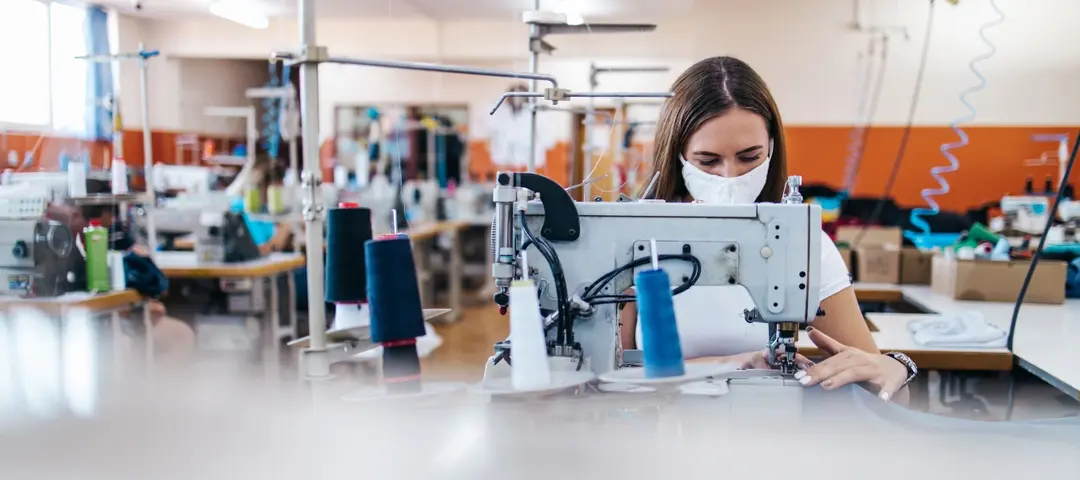Türkiye’s textile sector is exploring the possibility of relocating production facilities to Syria to overcome labor shortages and rising production costs, according to Ahmet Oksuz, chairman of the Istanbul Textile and Raw Materials Exporters’ Association (ITHIB). Oksuz presented Syria as a promising destination for investment, particularly in the textile industry, noting the substantial Syrian population that has settled in Turkey in recent years.
Oksuz explained that many Syrians have found employment across various sectors in Turkey, and as they return to their homeland, the opportunity to establish production facilities in Syria could offer significant advantages for the Turkish textile industry. “If we can seize this opportunity, I believe it could lead to substantial benefits,” he stated.
Lower Production Costs and Strategic Location
A key reason for considering Syria as a new production hub is the significantly lower local production costs. Oksuz pointed out the growing challenges that Turkey faces with labor availability and costs, especially in labor-intensive sectors like textiles. He emphasized that shifting production to Syria could help mitigate these issues, offering Turkish textile manufacturers a cost-effective solution.
“Syria offers a considerable advantage in terms of labor costs. If we can establish production facilities there, it would help us overcome challenges faced in Turkey due to rising labor costs,” Oksuz explained. He stressed that relocating textile production to Syria could be a strategic move to secure a competitive edge in the international market.
A Shift from Egypt to Syria
Traditionally, the Turkish textile sector has looked towards Egypt for its production needs, but Oksuz argued that focusing on Syria could yield even greater advantages. He noted that regions near Turkey, particularly in Syria, have the potential to become vital production hubs. The proximity of these regions to Turkey makes them an ideal location for labor-intensive production, which is increasingly important as labor shortages and rising costs become more pressing issues in Turkey.
“If we can initiate labor-intensive production in areas close to Turkey on the Syrian side, it would be a strategic advantage,” Oksuz added. This shift could help alleviate the strain on Turkey’s textile industry while simultaneously creating job opportunities for returning Syrian workers, contributing to both countries’ economies.

Future Prospects for Syria’s Textile and Retail Sectors
Sinan Oncel, president of the United Brands Association (BMD), also shared optimism about the potential for Turkish investment in Syria, although he acknowledged that the normalization process in Syria might take time. Once the region stabilizes, Oncel believes the Turkish retail sector could also expand into Syria through franchising, although the process would be gradual.
As Syria undergoes reconstruction following the collapse of its 61-year Baath regime, the Turkish textile and retail sectors are keen to contribute to the rebuilding process. With Syria’s reconstruction efforts accelerating, Turkish industry representatives see this as an opportunity to play a leading role in Syria’s recovery, especially within the textile and retail sectors, which are positioned to be key areas of collaboration.
In conclusion, the Turkish textile sector is closely watching the developments in Syria, with a focus on how the country’s reconstruction could provide new opportunities for investment. The potential for lower production costs, strategic location, and labor availability in Syria could position the region as a new hub for Turkish textile production in the coming years.



















